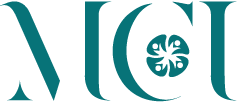Nearly everyone agrees that gender equality or diversity matter, and most of us would love to live in a truly diverse company. This is especially true in the industrial world, which is known to be traditionally masculine and can sometimes seem a bit conservative. But in practice, it often seems very difficult to “balance the equation” and ensure that all forms of diversity are fairly represented at all levels.
Gender Equality :
Gender equality is achieved when women and men enjoy the same rights and opportunities across all sectors of society, including economic participation and decision-making, and when the different behaviours, aspirations and needs of women and men are equally valued and favoured.
Different countries around the world are using different strategies to restore the equality that has been violated for ages, especially after the fact that big part of governments and society acknowledged the devastating results of inequality. Quoting systems are used more often in European and American counties to increase participation of women in society life.
Given the slow speed by which the number of women in politics is growing, there are increased calls for more efficient methods reach a gender balance in political institutions. Quotas present one such mechanism. The introduction of quota systems for women represents a qualitative jump into a policy of exact goals and means. Because of its relative efficiency, the hope for a dramatic increase in women’s representation by using this system is strong. The core idea behind quota systems is to recruit women into political positions and to ensure that women are not only a few tokens in political life.
Like other developing countries, Georgia doesn’t have definite attitude towards gender imbalance. State has Western values. In 2010, Parliament passed the Law on Gender Equality. Its essence is not allowing gender discrimination. The country has a law on public service, which turns men and women on equal terms. If we mention also new Labor Code it seems that in a legislative point of view everything is in order. But, unfortunately, the reality is beyond the regulations set by the law. For example, is 2013 Institute for Development of Freedom of Information (IDFI) conducted the research which offers the statistics of public service employees in terms of gender. According to the research of 165 public organization, 70.7% of employed are men and women are only represented by 29.3% (IDFI, 2013). This data is quite alarming. Especially under the circumstances when we know that the public sector offers much more competitive salaries and working conditions for citizens than the private sector or self-employment. This is the only space where wage policies are governed by low and discrimination by gender has no place. In other case women’s labor costs more than twice as cheap as man’s. Georgian National Statistics Service’s information can be used as a proof for that. Women employees’ average monthly salary is about 50% less than men’s (Geostat, 2013). The fact is if we consider it terms of gender, female labor is cheaper than male. Women are mainly employed in the private sector; they are also core of the country’s well-being. The majority of men are employed in public sector. This is the space where the taxes paid by the citizens are distributed in the form of wages. It is interesting how the population is distributed by its economic status. Only 57% of women are economically active and 78% of men. This statistics have a cause. 16% of economically inactive women are housewives (Forbes Georgia, 2014). Housewives’ work is not qualified as economic activity so it is not estimated at any macroeconomic significance settings.
Developed countries absolutely change their attitudes toward the role of women in economy as well as in business. For example, Fortune 500 companies are appointing women directors, women’s overall representation is poised to reach parity rapidly. McKinsey’s recent research that generates the results of 235 leading European companies and deals with women in leadership positions in the business field turned out that the performance of the companies where the gender balance of decision-making positions was policed created a critical mass (McKinsey&Company, 2012). According to financial and corporate reporting the characteristics of women’s behavior in the decisionmaking process has much more positive results than the decisions made by men in the same situation.
conclusion
Georgia as a post-Soviet developing country still have to do much in order to improve situation regarding gender equality and women’s empowerment. In order to achieve gender equality it is extremely important to provide sufficient access for them on economic and financial resources. It is also necessary for empowering women and for ensuring sustainable economic development. Supportive measures must be taken for increasing women’s participation in economic decisionmaking. Integrated policy should be developed in order to contribute to economic empowerment of women and for facilitating access to required resources. For this women’s role in economic development should be fully recognized and understood. Economic and social development strategies should include women’s involvement and their role must be defined clearly. Respective law enforcement measures also need to be taken in order to ensure that women’s rights are protected as in the society as well as on the workplace.

